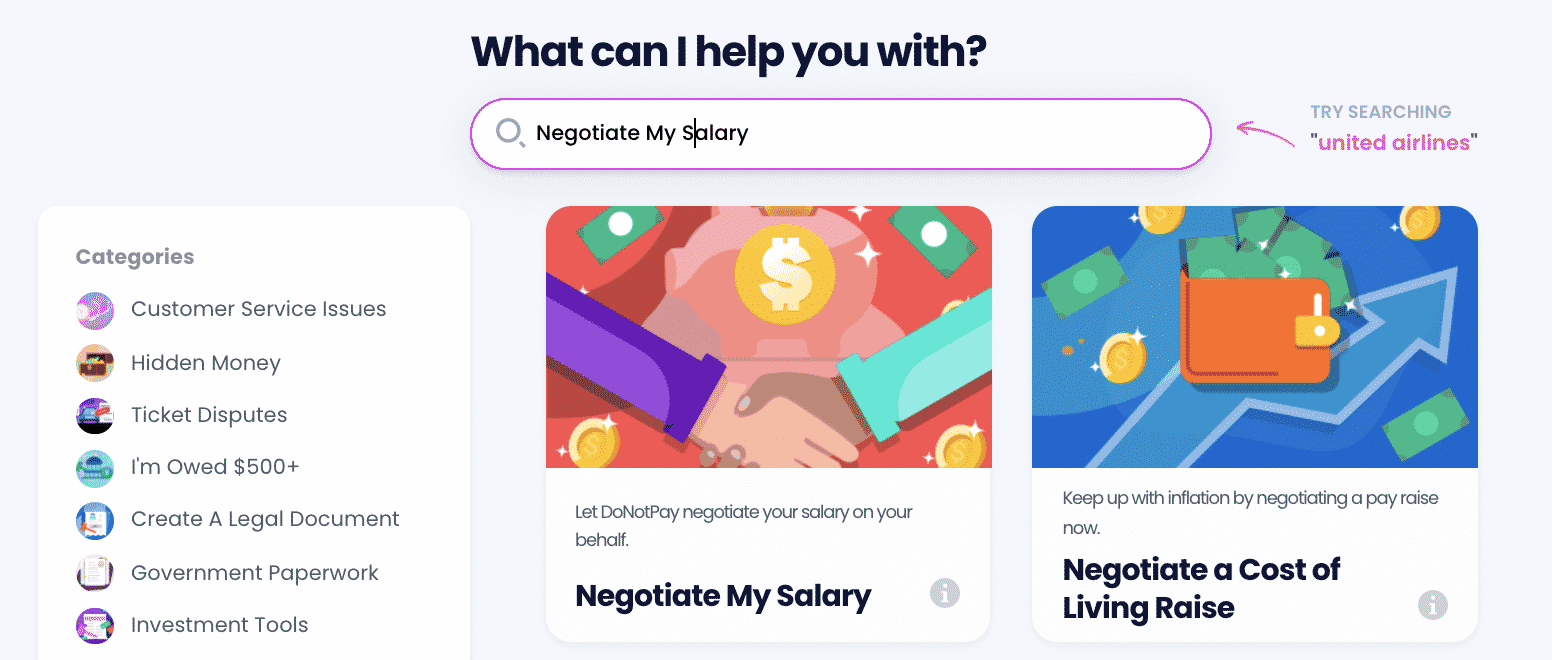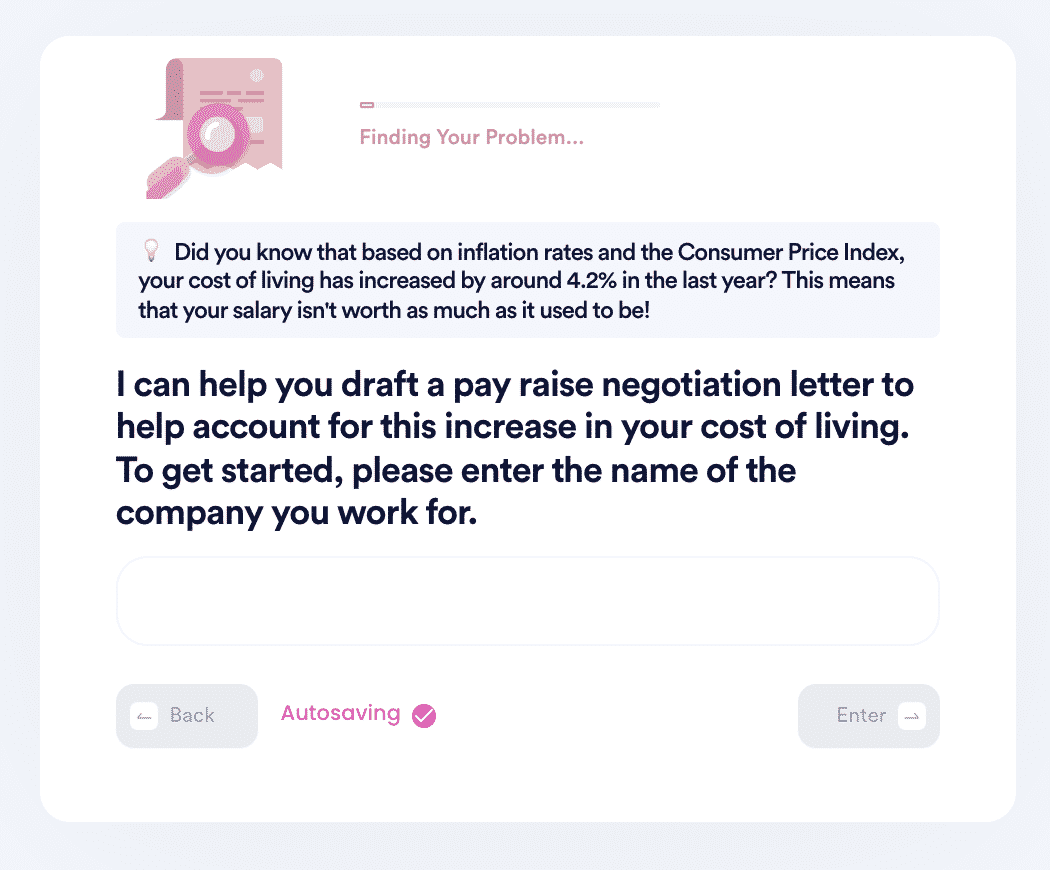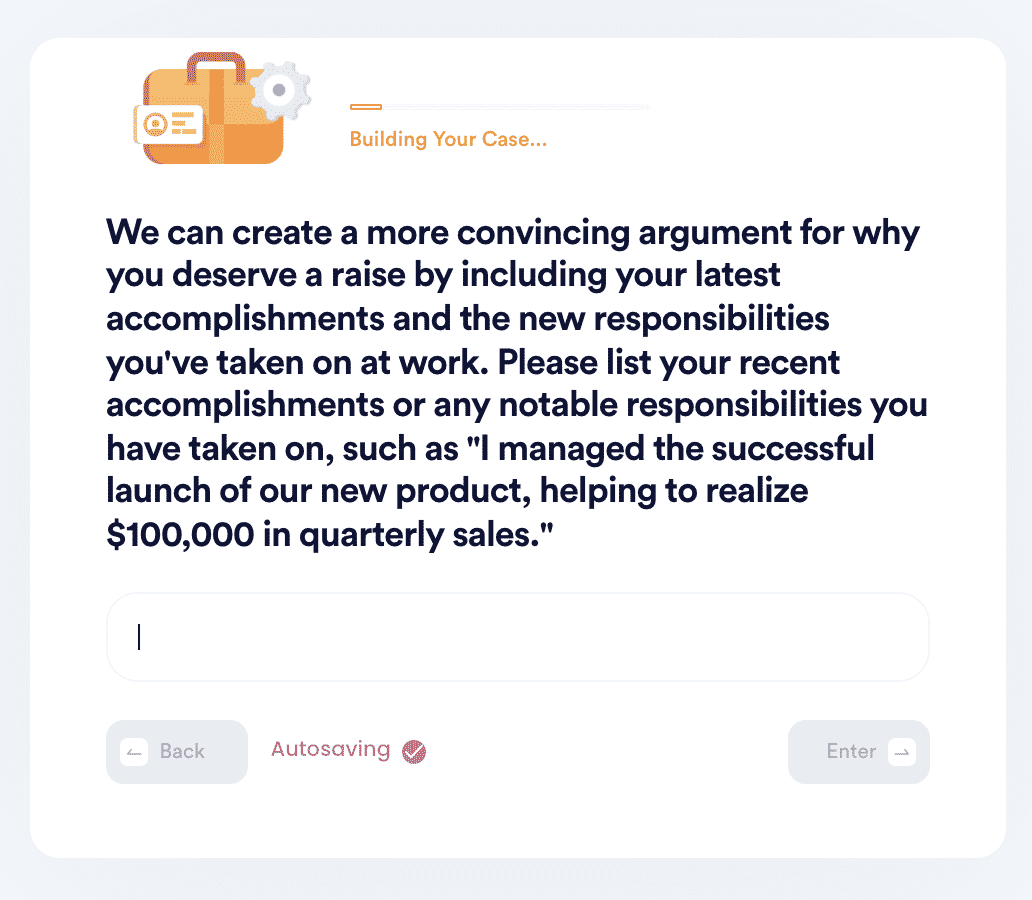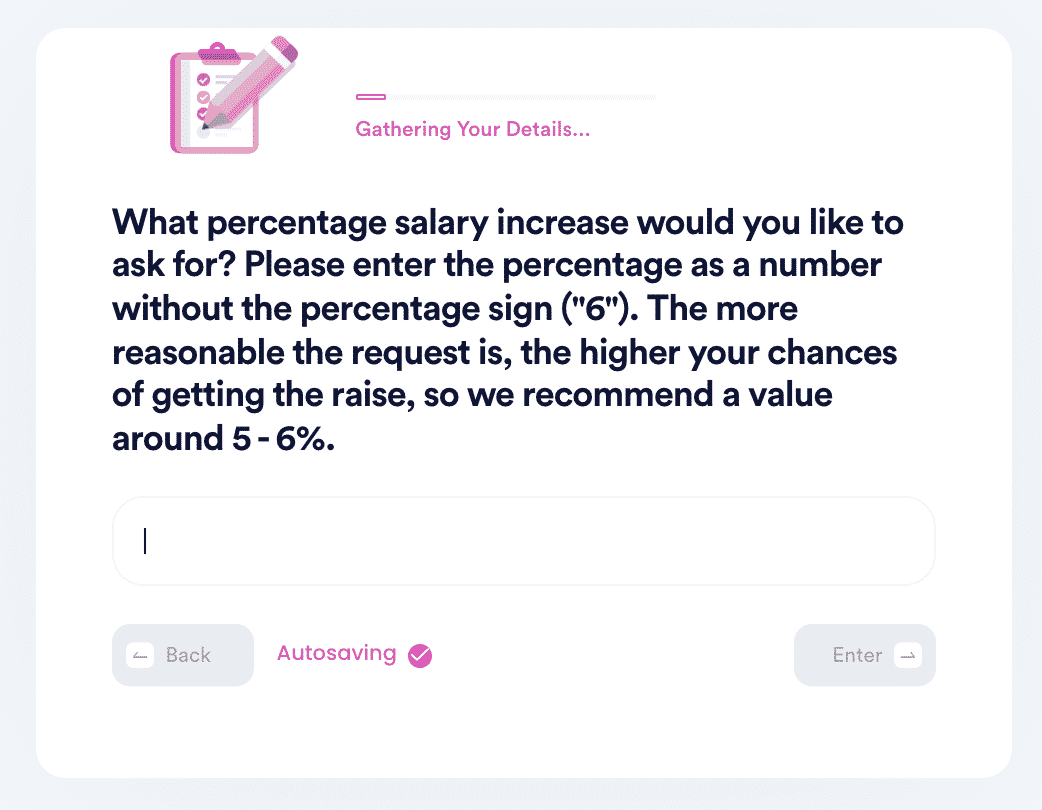Get That Raise: Words to Use When Negotiating Salary
Believing in yourself and having confidence in your value to an organization enables you to negotiate the specifics regarding your salary successfully. Whether you're negotiating for a raise or countering an offer for a new position, there are a few points to consider including how to phrase your words. DoNotPay can help you know the
Salary Negotiation Phrases
You can use the following to get a bump in your paycheck:
What to Say |
Why You Should Use It |
| “I am excited for this opportunity to work together” | It's common for people to think of salary negotiations as a battle. For many, it's always a situation where you try to get as much as you can versus your boss trying to remain within their budget.
This kind of thinking can be counterproductive. Experts advise against viewing negotiations as ultimatums but as collaborative processes. |
| “Based on my research…” | Before saying the amount you want, ensure you have a well-researched figure that aligns with the going pay rate in your industry. Using the phrase "based on my research" proves to the employer that you have done your homework and are aware of your value. |
| “Similarly situated employees..” | Having an idea about your colleagues' salaries can be a powerful data point during negotiations. If you are a senior manager at a firm and earn lower than your colleagues of the same rank, you need to address it.
Using the phrase "similarly situated employees" lets you tell the employer what you know about the pay gap while not mentioning anyone. |
| “Is that number flexible?” | It's not always a good idea to take the first figure that's put on the table. While it's great to push back, ensure you tactfully handle it.
Asking if "that number is flexible" with them gives your employer the grace to make a counteroffer, if not better. |
| “I would be more comfortable with (or if)...” | Using blunt phrases such as "I want" or "I need" can make you come off as entitled and can be a major turn-off to employees. However, expressing your preferred salary by saying "I would be more comfortable with" offers a collaborative approach to letting your recruiter know precisely what you would like so that they can offer you something along those lines. |
| “If you can do (that), I'm on board.” | The subject of money is a somewhat awkward one, and most times, both parties get anxious for it to end. It's therefore imperative to ensure you spell out what it would take for you to accept the recruiter's offer.
For instance, if the recruiter says the best they can offer is $60,000, but you hoped for $75,000, you can negotiate some benefits by saying, "I understand you can't come up to $75,000, but if you can add paid leave and medical insurance, on top of the $60,000 I would be on board." |
| “I would like some time to consider the offer.” | Even if you find a job that surpasses your expectations, always play it cool. Ask for some time to consider the proposal. This phrase might seem trivial, but it accomplishes several things. For starters, it buys you time to consider if the offer is appropriate or not. It also allows you to build your case for a counteroffer. |
| “Thank you.” | Being polite and showing gratitude goes a lot farther than most people think. Saying thank you at the end of the negotiation helps you maintain professionalism and acknowledges the other party for taking their time to engage with you. The recruiter is more likely to consider your offer if you're polite. |
Negotiate Your Salary With DoNotPay
Some people are unsure if they should negotiate their salary while some are unsure of the exact words to use when negotiating salary. DoNotPay has a practical solution that works in minutes.
All you need to do is:
- Search “negotiate my salary” on DoNotPay.

- Enter the name of your company and the industry you work in, so we can find the right wage statistics for your role.

- Answer a series of questions regarding your qualifications and achievements, relocation expenses, and other job offers if applicable.

- Enter the new base salary you would like to request.

And you're done! Once we've finalized the information, we will draft an official salary negotiation letter you can forward to your employer via email or physically.
Why Use DoNotPay to Negotiate Your Salary?
DoNotPay is your best bet for finding salary negotiation phrases because it is:
- Fast: You no longer have to spend hours trying to negotiate your salary.
- Easy: You don't have to struggle to figure out what to say.
- Successful: You can relax knowing we will make the best case for you.
DoNotPay Works Across All Entities With the Click of a Button
Aside from helping you figure out the exact words to use when negotiating salary, DoNotPay can help you with several other salary-related issues, such as:
- Asking your employer for a raise
- Figuring out the best time to ask for a raise
- Determining how much of a raise you should ask
- Negotiating your salary over the phone
- How to ask for a raise via email
- How often should you get a raise?
What Else Can DoNotPay Do?
DoNotPay is the first AI Consumer Champion to help you navigate several bureaucratic hurdles other than determining salary negotiation phrases. With DoNotPay, you can also:
- Get refunds
- Fight discrimination in the workplace
- Cancel services you no longer need
Try DoNotPay and see the difference.


